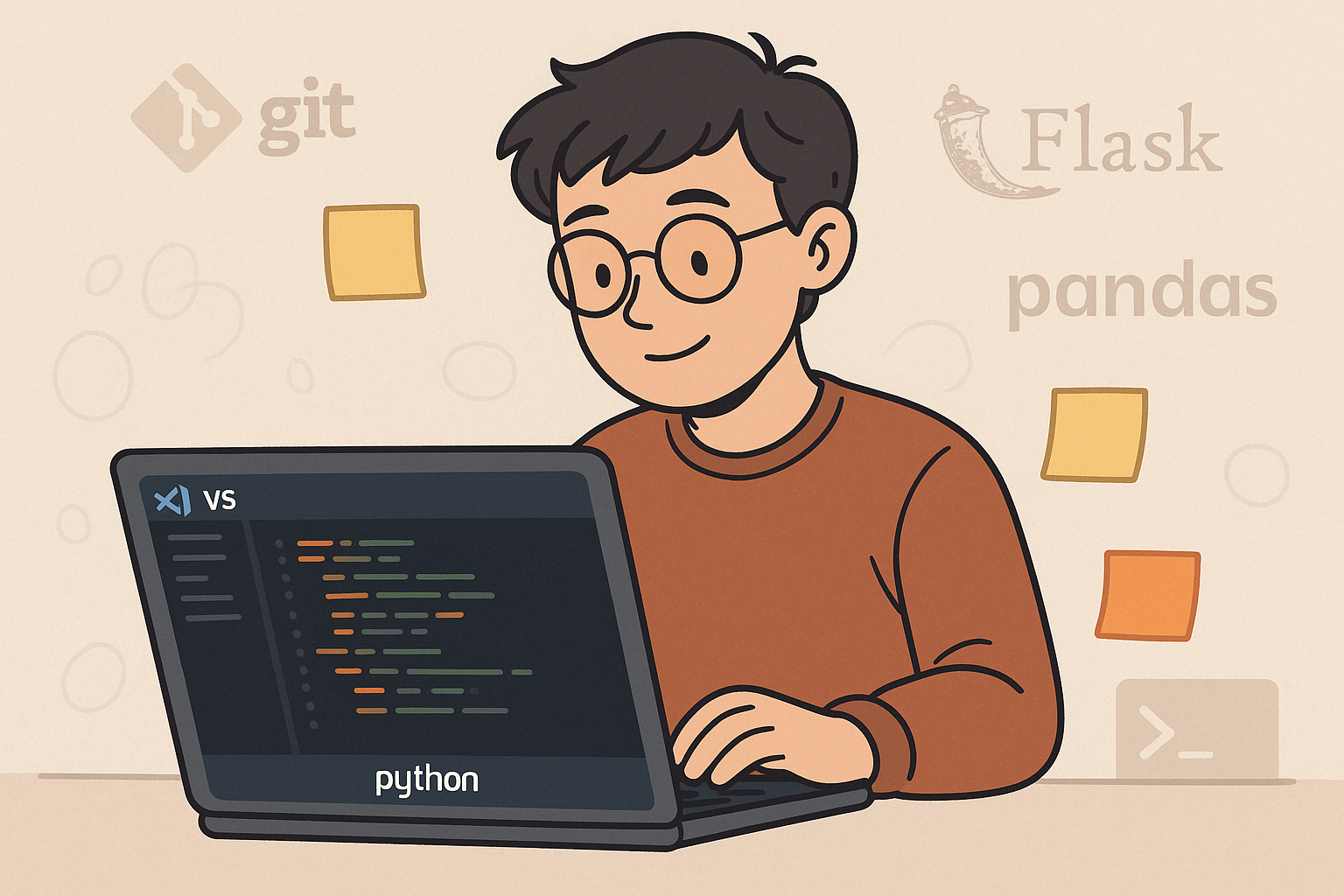From Confusion to Confidence — A Beginner’s Real-World Journey
When I first decided to get serious about programming, I had one question echoing in my head:
“Which language should I start with?”
I searched forums. I asked ChatGPT. I watched dozens of YouTube videos that contradicted each other.
Java? Too verbose.
C++? Too scary.
JavaScript? Too messy (at least in the beginning).
But Python?
Everyone — from a 12-year-old building a game to NASA engineers automating Mars Rover tasks — seemed to be using it.
So I chose Python.
And here’s the real story of why that choice worked for me, the mistakes I made, and the smart moves that experts swear by (which I wish I had followed earlier).
🌱 The Real Reason I Picked Python: It Didn’t Intimidate Me
While C made me feel like I needed a computer science degree, Python felt like a conversation.
This blew my mind:
print("Hello, World!")No semicolons, no main method, no public static void…
Just say what you want, and Python listens.
For someone new, that simplicity was empowering. I wasn’t just learning a language — I was building confidence.
💥 The First Mistake: Thinking Python is “Too Easy”
There’s this trap many beginners fall into (and I did too):
“Python is easy, so I don’t need to learn programming concepts deeply.”
WRONG.
Yes, Python is readable. But it still demands logical thinking, structure, and discipline.
I ignored that at first and wrote messy, unscalable code. It worked, but I didn’t understand why.
Lesson?
Easy syntax ≠ easy programming. Don’t mistake comfort for mastery.
🧠 Smart Advice I Wish I Took Earlier
Here are a few pro tips from experts that I now live by:
- “Write code like someone else will read it.”
My early scripts looked like alphabet soup. Learning to format code properly (PEP 8) was a game-changer. - “Don’t memorize, build.”
Instead of memorizing syntax, I started solving small problems — to-do apps, basic calculators, even a CLI dice roller. - “Use version control from Day 1.”
I thought Git was overkill for beginners. Turns out, it’s not.
Git taught me discipline — commit often, write meaningful messages, and own your history.
🧪 Real World Wins: Where Python Helped Me Quickly
- Automating Daily Tasks
I wrote a script that renamed 300 image files in seconds. Manual? Would’ve taken me an hour. Python? 5 lines. - Working with Excel Data
Usingpandas, I was able to clean up messy datasets, summarize totals, and export reports — all in under 10 minutes. - Building My Portfolio Site
With Flask and a basic HTML template, I launched a personal website within a week.
Every success made me hungrier to learn more.
🤯 The Most Surprising Thing I Learned?
Python is not just one thing.
It’s many worlds packed into one.
- Want to build a website? → Flask / Django
- Want to do AI/ML? → TensorFlow / PyTorch
- Want to automate boring tasks? →
os,shutil,pyautogui - Want to make a game? → Pygame
- Want to script Blender? → Yes, that’s Python too!
Once I realized that learning Python opens doors not to one domain, but to many, I stopped comparing it with other languages.
🏁 Final Thoughts: Should You Pick Python First?
If you’re someone who:
- Wants to build real things fast
- Gets discouraged by complex syntax
- Is new to programming but curious to go deep
Then yes, Python is your best first language.
Just remember — don’t treat it like a shortcut.
Treat it like the solid bridge it is:
from “What the hell is code?”
to
“Let me build that real quick.”
